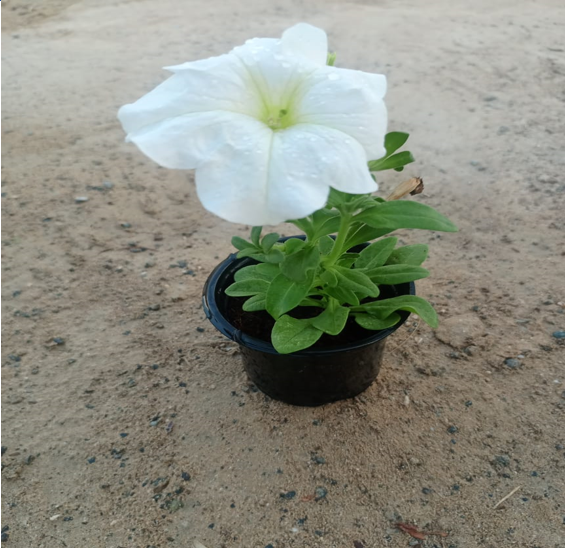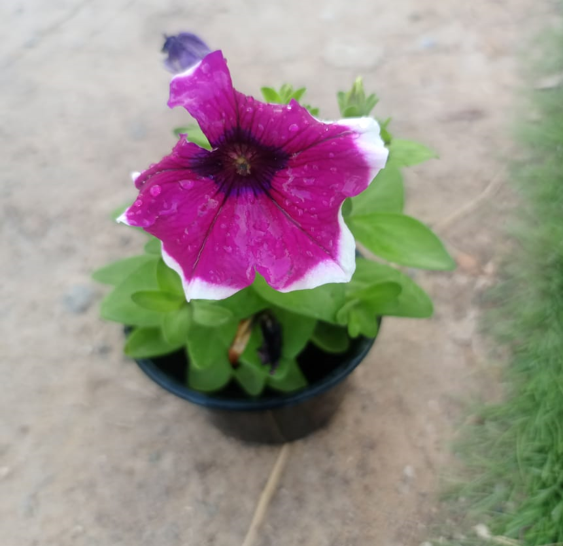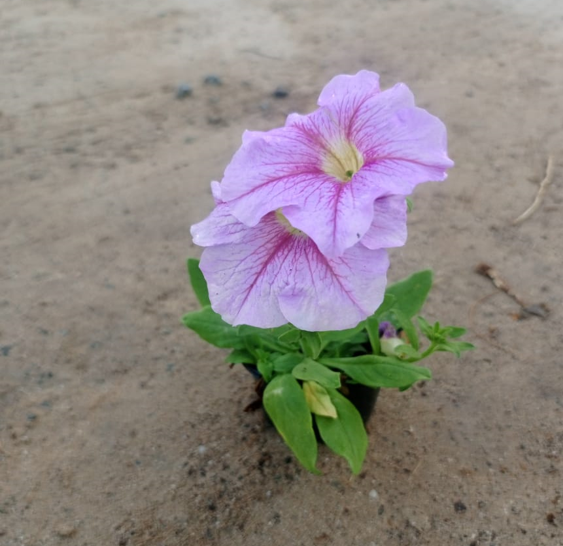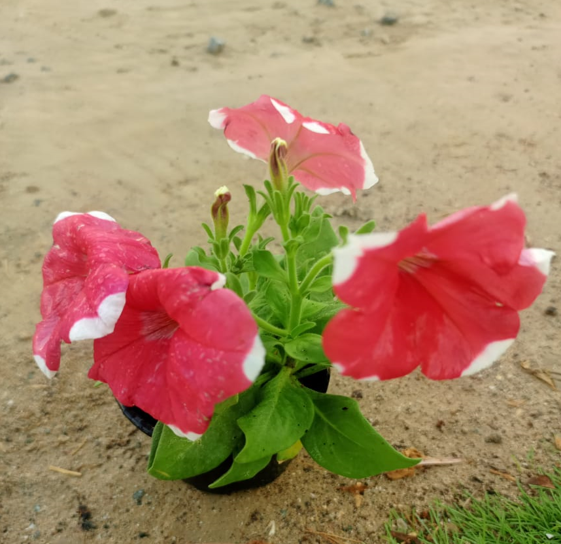Petunias are popular flowering plants belonging to the Solanaceae family, which also includes tomatoes and tobacco. They are native to South America, particularly Argentina and Brazil, and have been cultivated for ornamental purposes for many years. Here’s a detailed look at petunias:
Physical Characteristics
- Flowers: Petunia flowers come in a wide range of colors, including purple, pink, red, white, and yellow, often featuring striking patterns or edges. They have a trumpet-like shape, typically measuring 2 to 5 inches across.
- Foliage: The leaves are usually oval to lanceolate, with a slightly sticky texture and a soft, hairy surface. They are green, but the shade can vary depending on the specific variety.
- Growth Habit: Petunias can be categorized into several types based on their growth habits:
- Grandiflora: Known for large flowers, great for showy displays.
- Multiflora: Smaller flowers but more abundant and resilient, ideal for hanging baskets and garden beds.
- Surfinia: A trailing type perfect for containers and window boxes.
- Calibrachoa: Sometimes called “million bells,” these are similar but have even smaller flowers and a more compact growth habit.
Growing Conditions
- Light: Petunias thrive in full sun, requiring at least 6 hours of direct sunlight daily for optimal growth and blooming.
- Soil: They prefer well-draining soil rich in organic matter. A slightly acidic to neutral pH (around 6.0 to 7.0) is ideal.
- Watering: Regular watering is crucial, especially during dry spells, but avoid waterlogging. The soil should be kept moist but not soggy.
- Fertilization: They benefit from regular fertilization every few weeks with a balanced fertilizer to promote vibrant blooms.
Care and Maintenance
- Deadheading: Regularly removing spent flowers encourages continuous blooming and helps keep the plants looking tidy.
- Pruning: Pinching back leggy growth can encourage bushier plants.
- Pest and Disease Management: Watch out for pests like aphids and spider mites, as well as fungal diseases. Good air circulation and proper watering can help prevent issues.
Uses
Petunias are versatile plants used in various landscaping applications:
- Garden Beds: They add vibrant color to flower beds and borders.
- Hanging Baskets: Trailing varieties are perfect for cascading displays.
- Containers: They pair well with other flowers and foliage in mixed containers.
- Ground Covers: Some types spread out to cover ground effectively.
Symbolism and Cultural Significance
In the language of flowers, petunias can symbolize anger and resentment, but they also represent comfort and cheerfulness. They are often associated with summer and are popular in many cultures for their beauty and fragrance.
Have a look at our outdoor plant collectionhttps://mfourgreen.com/product-category/outdoor-plants/




Reviews
There are no reviews yet.